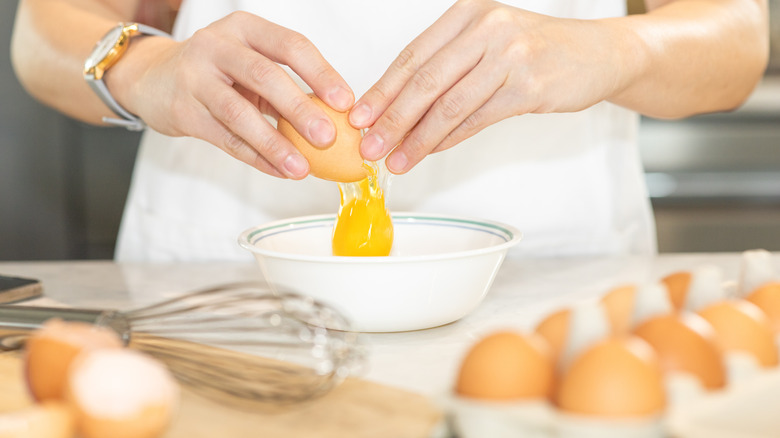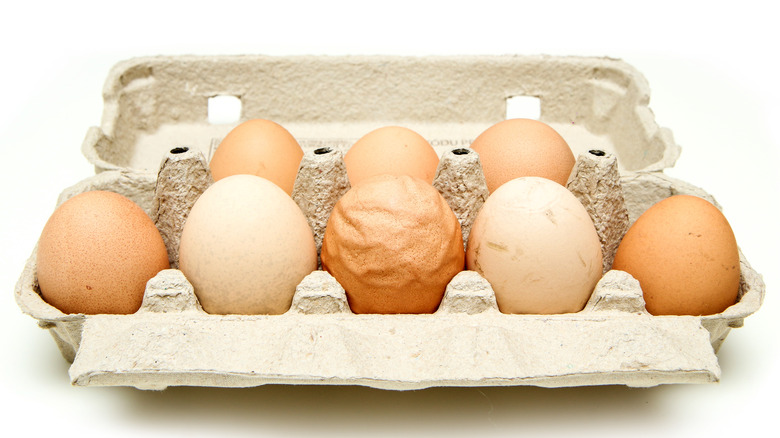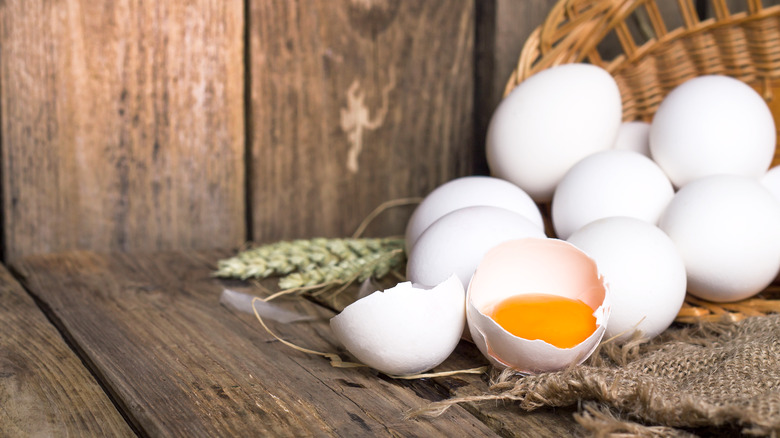Why You Should Crack Eggs In A Separate Bowl
Eggs contain a whole host of nutrients that we humans need, from vitamin B12 to folate, and pack a protein punch coming in at 6 grams per egg (per Healthline). They're great to have around and easy to keep around, lasting for weeks in the fridge and able to be stored for a few days after cooking — up to a week if they're hard-boiled, according to the U.S. Food and Drug Administration.
Eggs pose a certain risk, though, for causing salmonella poisoning, says the FDA. Some cases can be attributed to industry-standard shortcomings, but egg consumers nationally can take steps to avoid a nasty egg-induced illness, including storing eggs properly themselves and only buying eggs that have been kept in a refrigerated space. However you consume or store your eggs, though, there is always a risk of bacteria, and one extra step in the kitchen can help you handle eggs without ruining your meal, let alone your whole evening.
Identify bad eggs with ease
The next time you bake a cake or add eggs to your stir fry, try cracking the eggs in a separate bowl before adding them to other, already-assembled ingredients. This way, you can much more easily identify any eggs that seem suspicious, and keep them separate from other items. It's best to crack one egg at a time into a bowl so you can see each individual yolk, says Eat This Not That. This might ruin your dinner party trick of cracking an egg in each hand against a bowl, but slowing down in the kitchen and sacrificing a few extra minutes spent preparing your food can keep you, and whomever you may be cooking for, healthier.
When cracking each egg, keep an eye out for iffy egg qualities. A discolored yolk or a funny smell can be indications that an egg has gone bad, per Eating Well, which adds that eggs should have bright, yellow, and round yolks — so if you see these in your bowl, your eggs have passed with flying colors.
Retrieve pesky eggshells
Keeping salmonella away is priority number one, but to really excel in the kitchen, you want to avoid eggshells in your cooking. Cracking eggs separately from your food makes it a whole lot easier to keep these little shell bits from ending up in your mouth. Eggshells consist mostly of calcium carbonate and other organic material, says the USDA, and if any pieces drop into your bowl, there are a few simple things you can do to get them out.
To avoid touching the raw egg, try fishing out the eggshell with one of the halves of the shell itself. Using the shell as a little spoon will keep your hands cleaner, per Business Insider. If that doesn't work, the publication suggests wetting your fingers and removing the shell fragment by hand. These two tactics are much simpler to achieve when fishing eggshells out of a bowl that contains just egg, rather than trying to get those shell bits out of a hot wok or your cake mix.


